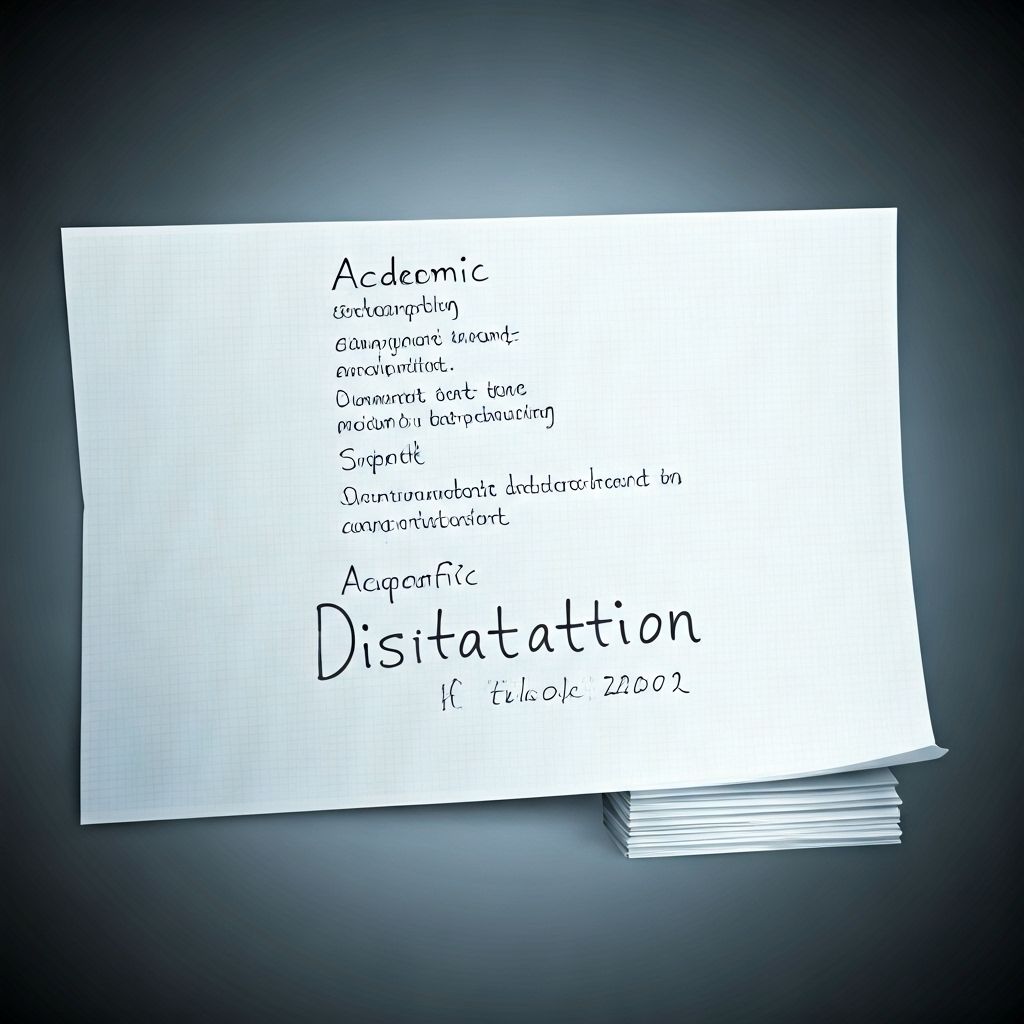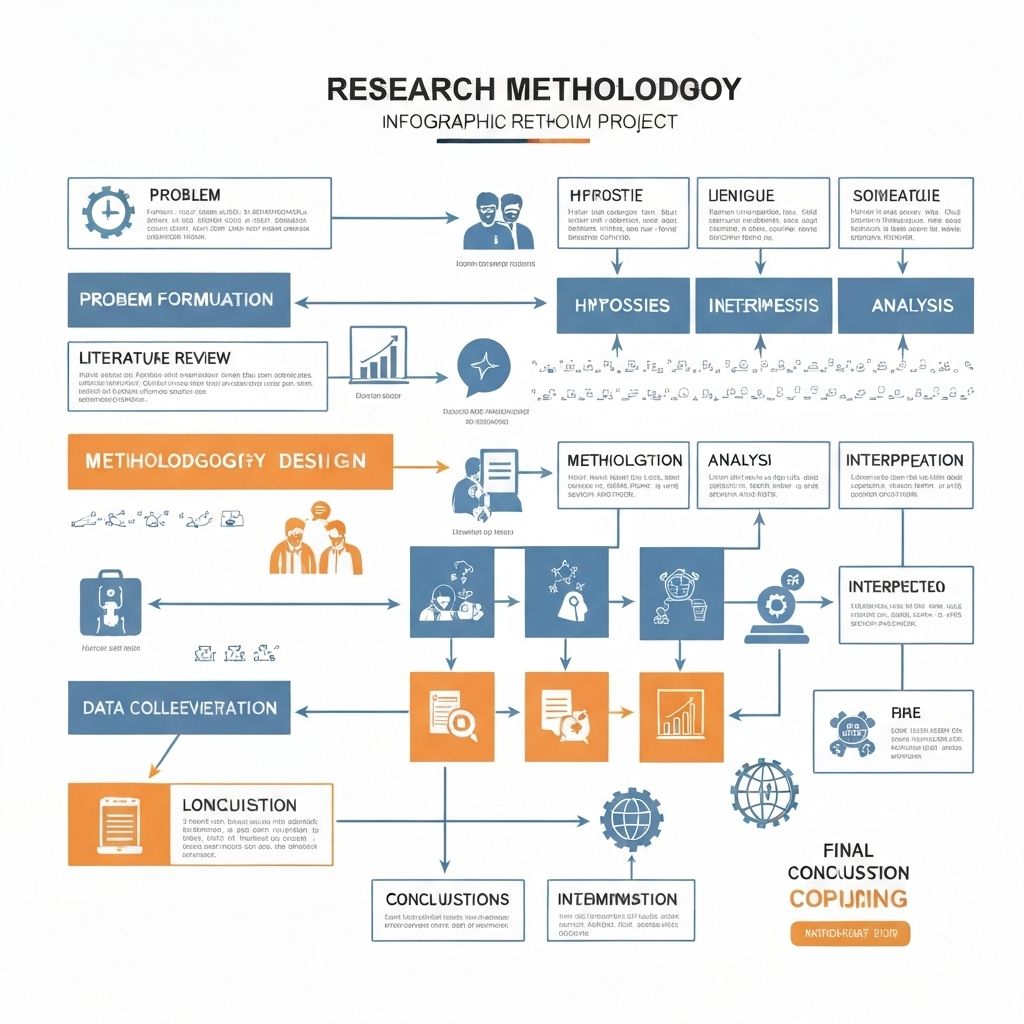Navigating Academic Excellence: A Comprehensive Guide to Dissertation Writing
Have you ever imagined the pivotal moment when you finally submit your dissertation? It's a milestone that marks the culmination of years of hard work and dedication.

The dissertation represents the pinnacle of academic achievement – a comprehensive research project that demonstrates your mastery of your chosen field and your ability to contribute original knowledge to the academic community. For many students, the dissertation process can feel overwhelming, but with proper planning, dedication, and the right strategies, it becomes a rewarding journey of intellectual discovery.

Understanding the Dissertation Journey
A dissertation is more than just an extended research paper; it's a substantial piece of original research that makes a unique contribution to your field of study. The process typically spans several months to years, depending on your program and research scope. Understanding this timeline and the various phases involved is crucial for success.
The dissertation journey can be divided into several key phases: topic selection and proposal development, literature review, methodology design, data collection and analysis, writing, and defense preparation. Each phase presents its own challenges and opportunities for growth.

Choosing Your Research Topic
Selecting the right dissertation topic is perhaps the most critical decision you'll make in your academic journey. Your topic should be:
- Personally meaningful: Choose something that genuinely interests you, as you'll be living with this topic for an extended period.
- Academically significant: Ensure your research addresses a gap in existing knowledge or offers a new perspective on an important issue.
- Feasible: Consider the scope, available resources, and time constraints when selecting your topic.
- Original: Your research should contribute something new to the academic conversation in your field.
Developing Your Research Proposal
Your research proposal serves as the blueprint for your dissertation. It should clearly articulate your research question, methodology, and the significance of your study. A strong proposal typically includes:
An introduction that establishes the context and importance of your research, a comprehensive literature review that demonstrates your understanding of existing scholarship, a detailed methodology section that explains how you'll conduct your research, and a timeline that outlines your planned progress.

Conducting a Thorough Literature Review
The literature review is the foundation of your dissertation, demonstrating your understanding of existing research and identifying the gap your work will fill. This process involves:
Systematic searching of academic databases, critical analysis of relevant sources, synthesis of existing knowledge, and identification of research gaps and opportunities. Remember that a literature review is not just a summary of existing research – it's a critical analysis that positions your work within the broader academic conversation.
Designing Your Research Methodology
Your methodology chapter explains how you'll answer your research question. Whether you're conducting quantitative research, qualitative research, or using a mixed-methods approach, your methodology should be:
- Appropriate: The methods should align with your research question and objectives.
- Rigorous: Your approach should meet the standards of academic research in your field.
- Ethical: Ensure your research complies with ethical guidelines and institutional requirements.
- Feasible: Consider practical constraints such as time, resources, and access to participants or data.

Data Collection and Analysis
The data collection phase is where your research plan comes to life. Whether you're conducting interviews, surveys, experiments, or archival research, maintaining careful records and following your established protocols is essential.
Data analysis requires patience and attention to detail. Take time to familiarize yourself with appropriate analytical tools and techniques for your field. Don't hesitate to seek help from statistical consultants or qualitative analysis experts if needed.
Writing Your Dissertation
Writing a dissertation is a marathon, not a sprint. Successful dissertation writers often follow these strategies:
- Establish a routine: Set aside dedicated writing time each day, even if it's just 30 minutes.
- Start early: Begin writing before you've finished all your research – writing can help clarify your thinking.
- Write regularly: Consistent daily writing is more effective than sporadic marathon sessions.
- Seek feedback: Share drafts with your advisor and peers regularly to get constructive feedback.

Managing the Emotional Journey
Writing a dissertation is as much an emotional journey as it is an intellectual one. It's normal to experience periods of doubt, frustration, and anxiety. Strategies for maintaining your mental health include:
Building a support network of fellow graduate students, family, and friends who understand your journey. Taking regular breaks and maintaining work-life balance. Celebrating small victories along the way. Seeking professional help if you're struggling with anxiety or depression.
Working with Your Advisor
Your relationship with your dissertation advisor is crucial to your success. Effective advisor relationships are built on:
Clear communication about expectations and timelines, regular meetings and progress updates, openness to feedback and criticism, and mutual respect and professionalism. Remember that your advisor wants you to succeed, but ultimately, the dissertation is your responsibility.
Preparing for Your Defense
The dissertation defense is your opportunity to present and defend your research before a committee of experts. Preparation involves:
Thoroughly reviewing your dissertation and being prepared to discuss any aspect of your work, anticipating potential questions and criticisms, practicing your presentation multiple times, and preparing for both the formal presentation and the question-and-answer session.

Beyond the Dissertation
Completing your dissertation is a significant achievement, but it's also the beginning of your career as an independent researcher. Consider how your dissertation research might lead to publications, conference presentations, or future research projects.
The skills you develop during the dissertation process – critical thinking, project management, writing, and research skills – are valuable in both academic and non-academic careers. Take pride in this accomplishment and use it as a foundation for your future endeavors.
Remember, every successful academic has walked this path before you. While the dissertation process is challenging, it's also an incredible opportunity for intellectual growth and personal development. Embrace the journey, stay focused on your goals, and remember that with persistence and dedication, you will reach that pivotal moment of submission and defense.
About Dr. Robert Anderson
Dr. Robert Anderson is a passionate writer and expert in lifestyle & travel. With years of experience in the field, they bring unique insights and practical advice to our readers.


